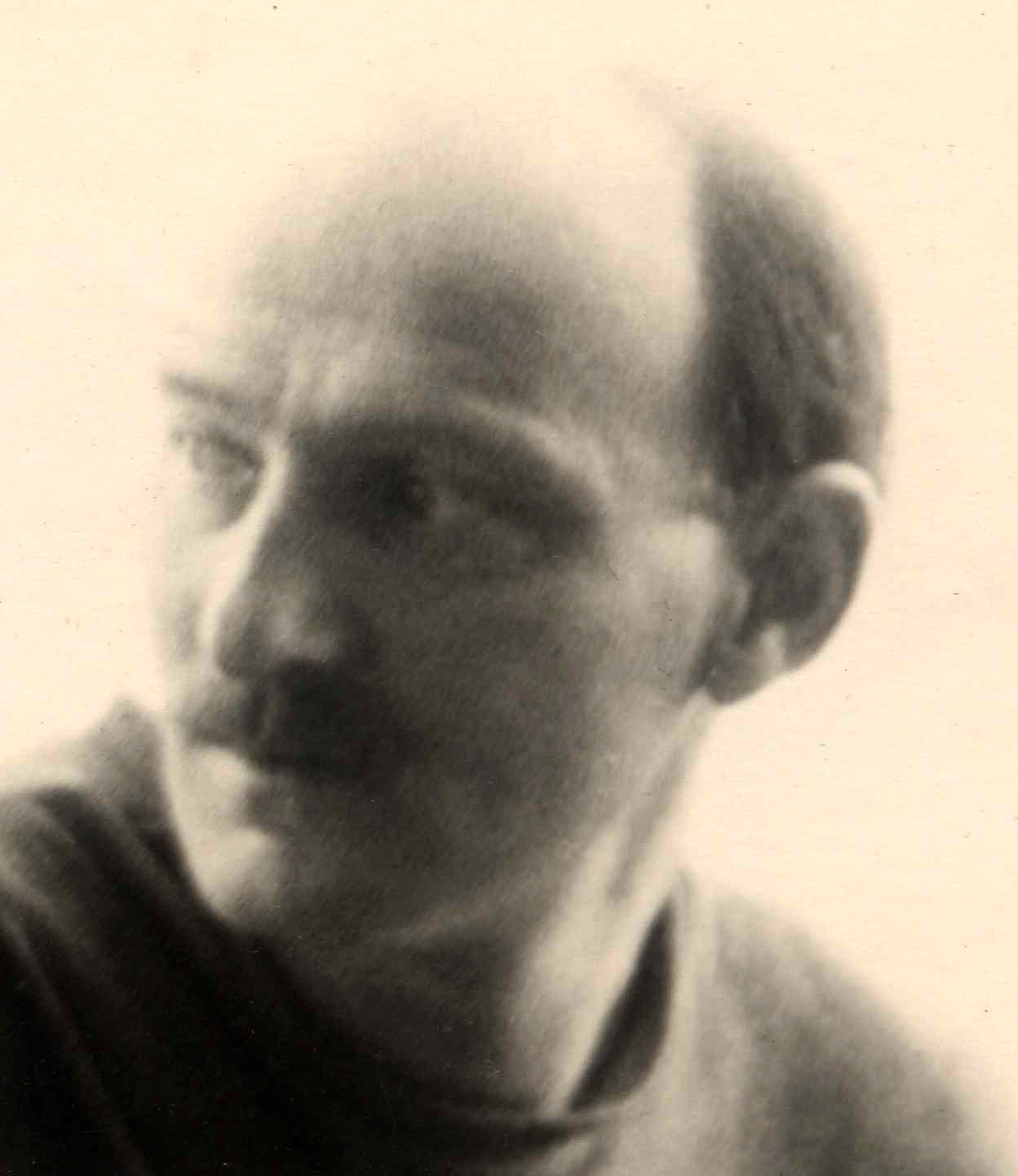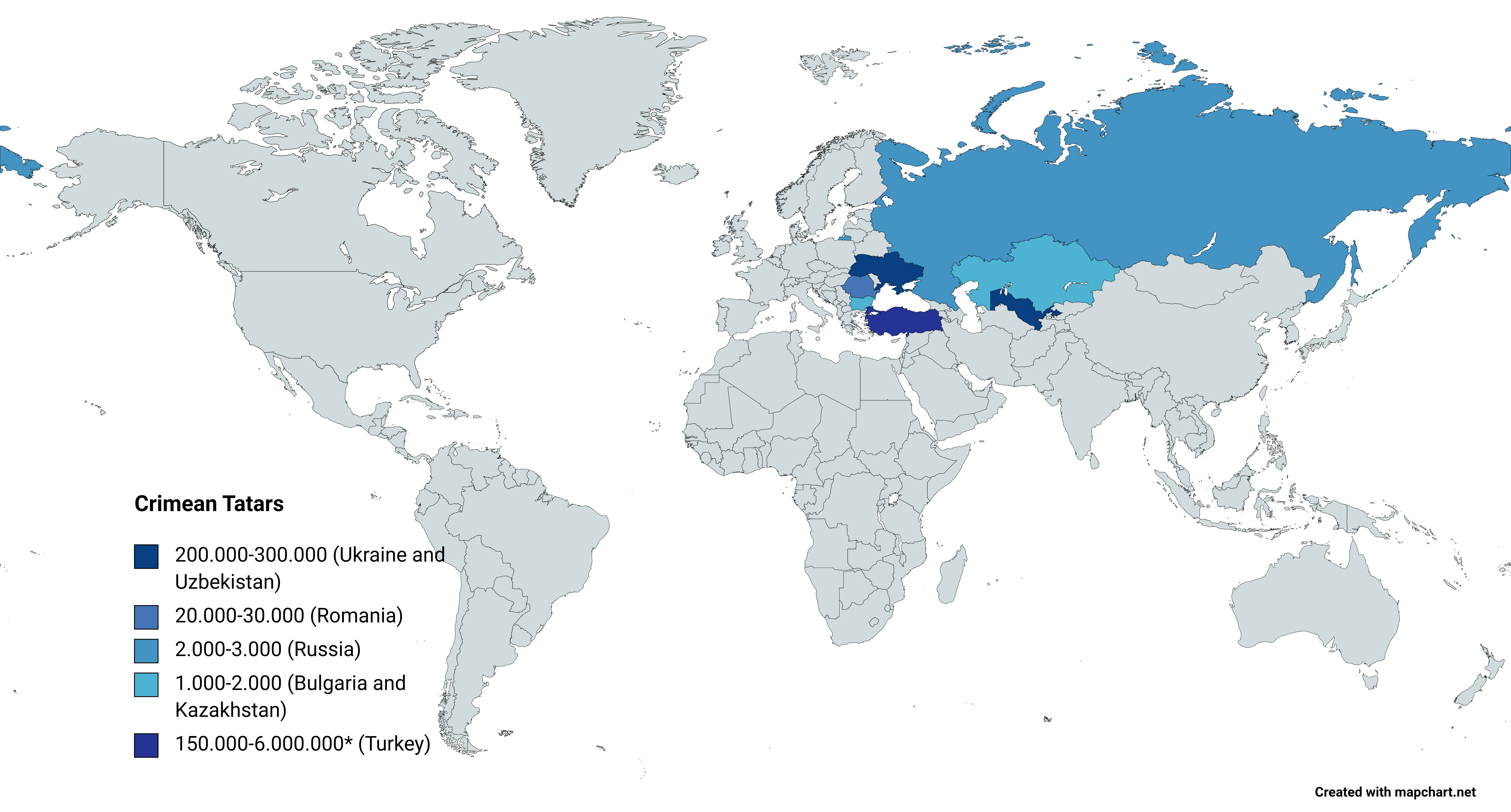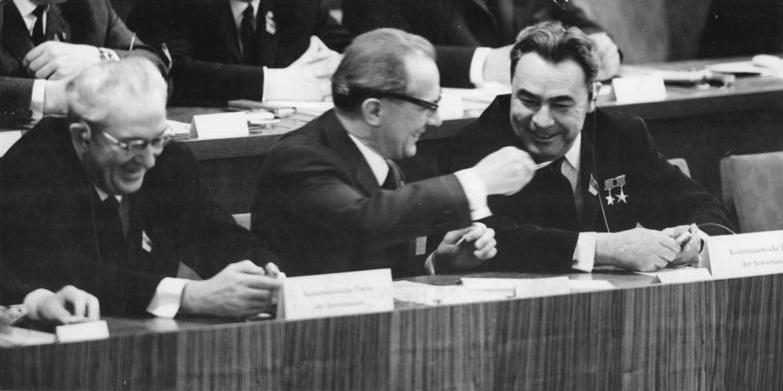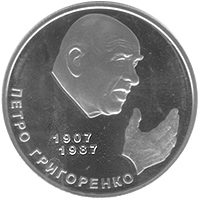|
Action Group For The Defense Of Human Rights In The USSR
The Initiative or Action Group for the Defense of Human Rights in the USSR (russian: Инициати́вная гру́ппа по защи́те прав челове́ка в СССР) was the first civic organization of the Soviet human rights movement. Founded in 1969 by 15 dissidents, the unsanctioned group functioned for over six years as a public platform for Soviet dissidents concerned with violations of human rights in the Soviet Union. The main work of the group consisted in documenting abuses and preparing appeals. The letters focused on persecution of people for their convictions in the USSR, with particular attention being given to the use of punitive psychiatry and to political prisoners. Unusually for the dissident movement at the time, the appeals were directed to international organizations such as the UN Commission on Human Rights. The documents of the Initiative Group were circulated in ''samizdat'', and published by the Western press, as well as being broadca ... [...More Info...] [...Related Items...] OR: [Wikipedia] [Google] [Baidu] |
Victor Krasin
Victor Aleksandrovich Krasin (also spelled Viktor Krasin, russian: Ви́ктор Алекса́ндрович Кра́син, 4 August 1929 – 3 September 2017) was a Russian human rights activist, economist, a former Soviet dissident and a political prisoner. At the time of his death Krasin was a US citizen. Biography In 1947 Krasin entered the Moscow University's Psychology Department of the Philosophical Faculty. In January 1949, Krasin and some friends were arrested by the KGB and sentenced to eight years in labor camps for criticizing Marxism–Leninism. Krasin was sent to the Ozerlag labor camp along the Tayshet railway. In September 1949, Krasin escaped with four others from the Taishet transit camp. They disarmed two of the guards when working in the sand carrier in the forest. They were re-captured on the third day and sentenced to 10 years for counter-revolutionary sabotage. Krasin spent the first winter working in the logging camp. In 1950 Krasin was transferred to ... [...More Info...] [...Related Items...] OR: [Wikipedia] [Google] [Baidu] |
Andrei Sakharov
Andrei Dmitrievich Sakharov ( rus, Андрей Дмитриевич Сахаров, p=ɐnˈdrʲej ˈdmʲitrʲɪjevʲɪtɕ ˈsaxərəf; 21 May 192114 December 1989) was a Soviet nuclear physicist, dissident, nobel laureate and activist for nuclear disarmament, peace, and human rights. He became renowned as the designer of the Soviet Union's RDS-37, a codename for Soviet development of thermonuclear weapons. Sakharov later became an advocate of civil liberties and civil reforms in the Soviet Union, for which he faced state persecution; these efforts earned him the Nobel Peace Prize in 1975. The Sakharov Prize, which is awarded annually by the European Parliament for people and organizations dedicated to human rights and freedoms, is named in his honor. Biography Early life Sakharov was born in Moscow on May 21, 1921. His father was Dmitri Ivanovich Sakharov, a physics professor and an amateur pianist. His father taught at the Second Moscow State University. Andrei's gran ... [...More Info...] [...Related Items...] OR: [Wikipedia] [Google] [Baidu] |
The New York Review Of Books
''The New York Review of Books'' (or ''NYREV'' or ''NYRB'') is a semi-monthly magazine with articles on literature, culture, economics, science and current affairs. Published in New York City, it is inspired by the idea that the discussion of important books is an indispensable literary activity. ''Esquire'' called it "the premier literary-intellectual magazine in the English language." In 1970, writer Tom Wolfe described it as "the chief theoretical organ of Radical Chic". The ''Review'' publishes long-form reviews and essays, often by well-known writers, original poetry, and has letters and personals advertising sections that had attracted critical comment. In 1979 the magazine founded the ''London Review of Books'', which soon became independent. In 1990 it founded an Italian edition, ''la Rivista dei Libri'', published until 2010. The ''Review'' has a book publishing division, established in 1999, called New York Review Books, which publishes reprints of classics, as well as ... [...More Info...] [...Related Items...] OR: [Wikipedia] [Google] [Baidu] |
United Nations
The United Nations (UN) is an intergovernmental organization whose stated purposes are to maintain international peace and international security, security, develop friendly relations among nations, achieve international cooperation, and be a centre for harmonizing the actions of nations. It is the world's largest and most familiar international organization. The UN is headquarters of the United Nations, headquartered on extraterritoriality, international territory in New York City, and has other main offices in United Nations Office at Geneva, Geneva, United Nations Office at Nairobi, Nairobi, United Nations Office at Vienna, Vienna, and Peace Palace, The Hague (home to the International Court of Justice). The UN was established after World War II with Dumbarton Oaks Conference, the aim of preventing future world wars, succeeding the League of Nations, which was characterized as ineffective. On 25 April 1945, 50 governments met in San Francisco for United Nations Conference ... [...More Info...] [...Related Items...] OR: [Wikipedia] [Google] [Baidu] |
Crimean Tatars
, flag = Flag of the Crimean Tatar people.svg , flag_caption = Flag of Crimean Tatars , image = Love, Peace, Traditions.jpg , caption = Crimean Tatars in traditional clothing in front of the Khan's Palace , poptime = , popplace = , region1 = , pop1 = 3,500,000 6,000,000 , ref1 = , region2 = * , pop2 = 248,193 , ref2 = , region3 = , pop3 = 239,000 , ref3 = , region4 = , pop4 = 24,137 , ref4 = , region5 = , pop5 = 2,449 , ref5 = , region7 = , pop7 = 1,803 , ref7 = , region8 = , pop8 = 1,532 , ref8 = , region9 = *() , pop9 = 7,000(500–1,000) , ref9 = , region10 = Total , pop10 = 4.024.114 (or 6.524.11 ... [...More Info...] [...Related Items...] OR: [Wikipedia] [Google] [Baidu] |
Ilya Gabay
Ilya Yankelevich Gabay (russian: Илья́ Янкеле́вич Габа́й, p=ɪˈlʲjæ jənkʲɪˈlʲevʲɪtɕ ɡɐˈbaj, a=Il'ya Yankyelyevich Gabay.ru.vorb.oga; 9 October 1935, Baku – 20 October 1973, Moscow; buried in Baku) was a key figure in the civil rights movement in the Soviet Union. Gabay, who was Jewish, was also a literature teacher, poet, and writer. During his lifetime, his works were published only in samizdat. During the trial of writers Andrei Sinyavsky and Yuli Daniel in 1965, Gabay took part in the " glasnost meeting" calling for an open and fair trial for the writers. On January 22, 1967, he participated in a demonstration in defense of the arrested dissidents Yuri Galanskov, Vera Lashkova, Alexey Dobrovolsky, and Pavel Radzievsky, a case known as the Trial of the Four. After the demonstration, he was arrested and spent five months in Lefortovo prison. He was released in June 1967, and his case was closed. After his release, he, together with Yul ... [...More Info...] [...Related Items...] OR: [Wikipedia] [Google] [Baidu] |
Yuri Andropov
Yuri Vladimirovich Andropov (– 9 February 1984) was the sixth paramount leader of the Soviet Union and the fourth General Secretary of the Communist Party of the Soviet Union. After Leonid Brezhnev's 18-year rule, Andropov served in the post from November 1982 until his death in February 1984. Earlier in his career, Andropov served as the Soviet ambassador to Hungary from 1954 to 1957, during which time he was involved in the suppression of the 1956 Hungarian Uprising. He was named chairman of the KGB on 10 May 1967. In this position, he oversaw a massive crackdown on dissent carried out via mass arrests and involuntary psychiatric commitment of people deemed "socially undesirable". After Brezhnev suffered a stroke in 1975 that impaired his ability to govern, Andropov effectively dominated policy-making alongside Foreign Minister Andrei Gromyko, Defense Minister Andrei Grechko and Grechko's successor, Marshal Dmitry Ustinov, for the rest of Brezhnev's rule. Upon Brezhnev ... [...More Info...] [...Related Items...] OR: [Wikipedia] [Google] [Baidu] |
Anti-Soviet Agitation
Anti-Soviet agitation and propaganda (ASA) (russian: антисове́тская агита́ция и пропага́нда (АСА)) was a criminal offence in the Soviet Union. To begin with the term was interchangeably used with counter-revolutionary agitation. The latter term was in use immediately after the first Russian Revolution in February 1917. The offence was codified in criminal law in the 1920s, and revised in the 1950s in two articles of the RSFSR Criminal Code. The offence was widely used against Soviet dissidents. Stalin era The new Criminal Codes of the 1920s introduced the offence of ''anti-Soviet agitation and propaganda'' as one of the many forms of counter-revolutionary activity grouped together under Article 58 of the Russian RSFSR Penal Code. The article was put in force on 25 February 1927 and remained in force throughout the period of Stalinism. Article 58:10, "propaganda and agitation that called to overturn or undermining of the Soviet regime", was pu ... [...More Info...] [...Related Items...] OR: [Wikipedia] [Google] [Baidu] |
Pyotr Grigorenko
Petro Grigorenko or Petro Hryhorovych Hryhorenko ( uk, Петро́ Григо́рович Григоре́нко, russian: Пётр Григо́рьевич Григоре́нко, link=no, – 21 February 1987) was a high-ranking Soviet Army commander of Ukrainians, Ukrainian descent, who in his fifties became a dissident and a writer, one of the founders of the human rights movement in the Soviet Union. For 16 years, he was a professor of cybernetics at the Frunze Military Academy and chairman of its cybernetic section before joining the ranks of the early dissidents. In the mid-1970s Grigorenko helped to found the Moscow Helsinki Group and the Ukrainian Helsinki Group, before leaving the USSR for medical treatment in the United States. The Soviet government barred his return, and he never again returned to the Soviet Union. In the words of Joseph Alsop, Grigorenko publicly denounced the "totalitarianism that hides behind the mask of so-called Soviet democracy." Early life P ... [...More Info...] [...Related Items...] OR: [Wikipedia] [Google] [Baidu] |
Alexander Ginzburg
Alexander "Alik" Ilyich Ginzburg ( rus, Алекса́ндр Ильи́ч Ги́нзбург, p=ɐlʲɪkˈsandr ɨˈlʲjidʑ ˈɡʲinzbʊrk, a=Alyeksandr Il'yich Ginzburg.ru.vorb.oga; 21 November 1936 – 19 July 2002), was a Russian journalist, poet, human rights activist and dissident. Between 1961 and 1969 he was sentenced three times to labor camps. In 1979, Ginzburg was released and expelled to the United States, along with four other political prisoners ( Eduard Kuznetsov, Mark Dymshits, Valentin Moroz, and Georgy Vins) and their families, as part of a prisoner exchange. Biography A nephew of Yevgenia Ginzburg, and semi-orphan, Alexander Ginzburg, was educated in Moscow, and worked as a lathe operator and part time journalist after leaving school, then as an actor, but had to give up acting in 1959, after falling from a third storey window. Dissident work At the end of 1959, Ginzburg issued the USSR's first samizdat literary magazine ''Phoenix'', with Yuri Galanskov. ... [...More Info...] [...Related Items...] OR: [Wikipedia] [Google] [Baidu] |
Yuri Galanskov
Yuri Timofeyevich Galanskov (russian: Ю́рий Тимофе́евич Галанско́в, 19 June 1939, Moscow - 4 November 1972, Mordovia) was a Russian poet, historian, human rights activist and dissident. For his political activities, such as founding and editing samizdat almanac ''Phoenix'', he was incarcerated in prisons, camps and forced treatment psychiatric hospitals ''(Psikhushkas)''. He died in a labor camp. Early publications Yuri Galanskov began his dissident activities in 1959, as a participant in the poetry readings in Mayakovsky Square. Several of his works were published in the samizdat anthology '' Sintaksis''. After Alexander Ginzburg was arrested in 1960 for publishing ''Sintaksis'', Yuri Galanskov became the leader of dissident publishing in the Soviet Union. Galanskov’s first publication, ''Phoenix'' came in 1961, and contained direct criticism of the Soviet government, partly in the form of poetry. ''Phoenix'' published works by Boris Pasternak, Nat ... [...More Info...] [...Related Items...] OR: [Wikipedia] [Google] [Baidu] |





